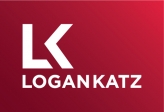
COVID-19 is not the only virus that feeds on the vulnerable. With the heightened fear and uncertainty during this pandemic, fraudsters have heightened their efforts towards preying on the vulnerable. Reports show there has been a spiked increase in fraudulent, scamming and phishing activities in relation to COVID-19.
During these times, it is especially important to be informed, alert and aware. Make sure you keep a vigilant eye on all your incoming feeds – social media, email, text, instant messaging, phone, and even the old classic doorbell. As COVID-19 continues to spread its reach, so do fraudsters. Just as we can do much to slow the spread of COVID-19, we can also do much to minimize the damage that fraudsters inflict. This article provides information on COVID-19 related scams in general, and specifically Canada Revenue Agency (CRA) related scams, in order to help you stay informed and aware.
COVID-19 SCAMS
The Canadian Anti-Fraud Centre issued the following Bulletin Alert on March 18, 2010: As COVID-19 continues to spread globally, watch out for associated scams. Fraudsters want to profit from consumers’ fears, uncertainties and misinformation. Fraudsters are exploiting the crisis to facilitate fraud and cyber crime.
Cleaning or heating companies
- offering duct cleaning services or air filters to protect from COVID-19
Local and provincial hydro/electrical power companies
- threatening to disconnect your power for non-payment
Centers for Disease Control and Prevention or the World Health Organization
- offering fake lists for sale of COVID-19 infected people in your neighbourhood
Public Health Agency of Canada
- giving false results saying you have been tested positive for COVID-19
- tricking you into confirming your health card and credit card numbers for a prescription
Red Cross and other known charities
- offering free medical products (e.g. masks) for a donation
Government departments
- sending out coronavirus-themed phishing emails
- tricking you into opening malicious attachments
- tricking you to reveal sensitive personal and financial details
Financial advisors
- pressuring people to invest in hot new stocks related to the disease
- offering financial aid and/or loans to help you get through the shut downs
Door-to-door sales people
- selling household decontamination services
Private companies
- offering fast COVID-19 tests for sale
-
- Only health care providers can perform the tests
- No other tests are genuine or guaranteed to provide accurate results
-
- selling fraudulent products that claim to treat or prevent the disease
-
- Unapproved drugs threaten public health and violate federal laws
-
CRA Scams
Know how to recognize a scam
There are many fraud types, including new ones invented daily.Taxpayers should be vigilant when they receive, either by telephone, mail, text message or email, a fraudulent communication that claims to be from the Canada Revenue Agency (CRA) requesting personal information such as a social insurance number, credit card number, bank account number, or passport number.These scams may insist that this personal information is needed so that the taxpayer can receive a refund or a benefit payment. Cases of fraudulent communication could also involve threatening or coercive language to scare individuals into paying fictitious debt to the CRA. Other communications urge taxpayers to visit a fake CRA website where the taxpayer is then asked to verify their identity by entering personal information. These are scams and taxpayers should never respond to these fraudulent communications or click on any of the links provided.
What to expect when the Canada Revenue Agency contacts you
Scammers posing as Canada Revenue Agency (CRA) employees continue to contact Canadians, misleading them into paying false debt. These persistent scammers have created fear among people who now automatically assume that any communication from someone representing the CRA is not genuine.Remember, CRA does indeed contact taxpayers by phone, email and mail for legitimate reasons. The following tips will help Canadians identify legitimate communications from the CRA.
By phone
The CRA may
- verify your identity by asking for personal information such as your full name, date of birth, address and account, or social insurance number
- ask for details about your account, in the case of a business enquiry
- call you to begin an audit process
The CRA will never
- ask for information about your passport, health card, or driver’s license
- demand immediate payment by Interac e-transfer, bitcoin, prepaid credit cards or gift cards from retailers such as iTunes, Amazon, or others
- use aggressive language or threaten you with arrest or sending the police
- leave voicemails that are threatening or give personal or financial information
By email
The CRA may
- notify you by email when a new message or a document, such as a notice of assessment or reassessment, is available for you to view in secure CRA portals such as My Account, My Business Account, or Represent a Client
- email you a link to a CRA webpage, form, or publication that you ask for during a telephone call or a meeting with an agent (this is the only case where the CRA will send an email containing links)
The CRA will never
- give or ask for personal or financial information by email and ask you to click on a link
- email you a link asking you to fill in an online form with personal or financial details
- send you an email with a link to your refund
- demand immediate payment by Interac e-transfer, bitcoin, prepaid credit cards or gift cards from retailers such as iTunes, Amazon, or others
- threaten you with arrest or a prison sentence
By mail
The CRA may
- ask for financial information such as the name of your bank and its location
- send you a notice of assessment or reassessment
- ask you to pay an amount you owe through any of the CRA’s payment options
- take legal action to recover the money you owe, if you refuse to pay your debt
- write to you to begin an audit process
The CRA will never
- set up a meeting with you in a public place to take a payment
- demand immediate payment by Interac e-transfer, bitcoin, prepaid credit cards or gift cards from retailers such as iTunes, Amazon, or others
- threaten you with arrest or a prison sentence
By text messages/instant messaging
The CRA never uses text messages or instant messaging such as Facebook Messenger or WhatsApp to communicate with taxpayers under any circumstance. If a taxpayer receives text or instant messages claiming to be from the CRA, they are scams!
Before giving money or personal information over the phone
Make sure the caller is a CRA employee
- Ask for, or make a note of, the caller’s name, work section, and office location and tell them that you want to first verify their identity.
- You can then check that the employee calling you about your taxes works for the CRA or that the CRA did contact you by calling 1-800-959-8281 for individuals or 1-800-959-5525 for businesses. If the call you received was about a government program such as Student Loans or Employment Insurance, call 1-866-864-5823.
To protect yourself from scams, verify your tax status and make sure the CRA has your current address and email
- Confirm your tax status through one of the CRA’s secure portals, My Account, My Business Account, or Represent a Client, or through the MyCRA and MyBenefits CRA mobile web apps
- You can also call the CRA’s Individual Tax Account Balance Automated Service at 1-866-474-8272. This automated phone service provides information about your tax account balance, as well as your last payment amount and date. To use this service, be ready to give your social insurance number, date of birth and the total income you entered on line 150 of your 2017 or 2016 tax return.
- Call 1-866-864-5823 to update your address or contact information for government programs that you owe money to, such as student loans or employment insurance.
To report scams
To report scams, go to antifraudcentre.ca or call 1-888-495-8501. If you think you may be the victim of fraud or you unknowingly provided personal or financial information, contact your local police service, financial institution, and credit reporting agencies.
Trusted resources and advice
For more information and updates, go to the following trusted sites.
- More information on CRA tax scams and fraud can be found at canada.ca/taxes-fraud-prevention.
- Refer to Government of Canada COVID-19 health, financial and security resources
- Refer to Financial Consumer Agency of Canada COVID-19 information
- Reference the latest health information from these legitimate sources:
- Coronavirus disease (COVID-19) (Public Health Agency of Canada)
- Coronavirus disease (COVID-19) outbreak (World Health Organization)
- Contact your insurance provider to answer any health insurance questions
- Make sure you have anti-virus software installed and keep your operating system up to date
During these challenging times, when our fear and anxiety can catch us off guard, it is especially important to be vigilant to fraudulent schemes. Stay healthy, safe, and informed. Spread the word, slow the spread.

This article has been written in general terms to provide broad guidance only. It should not be relied upon to cover specific situations and you should not act upon the information contained herein without obtaining specific professional advice. Please contact our office to discuss this information in the context of your specific circumstances. We accept no responsibility for any loss or damage resulting from your reliance on the information in this article.
Author

Partner
